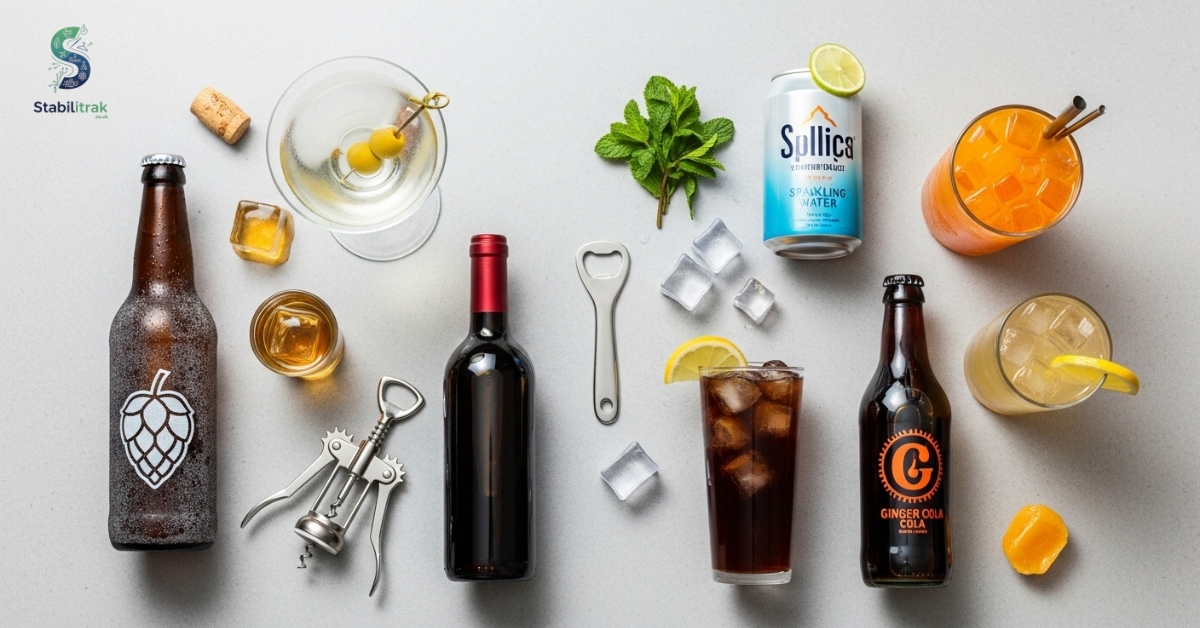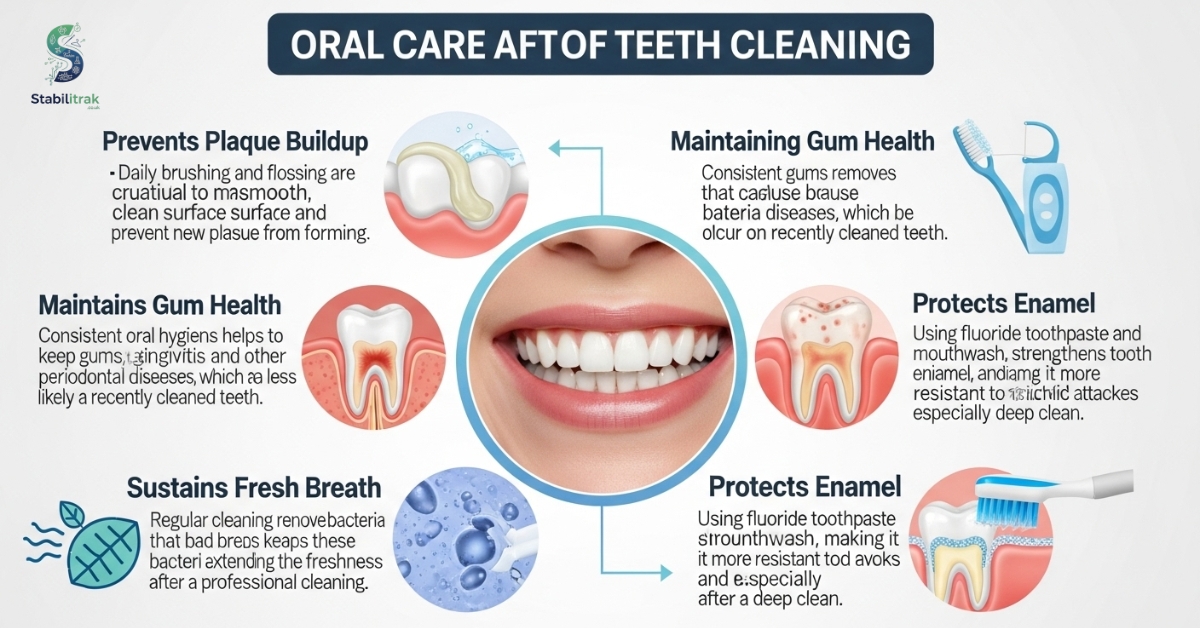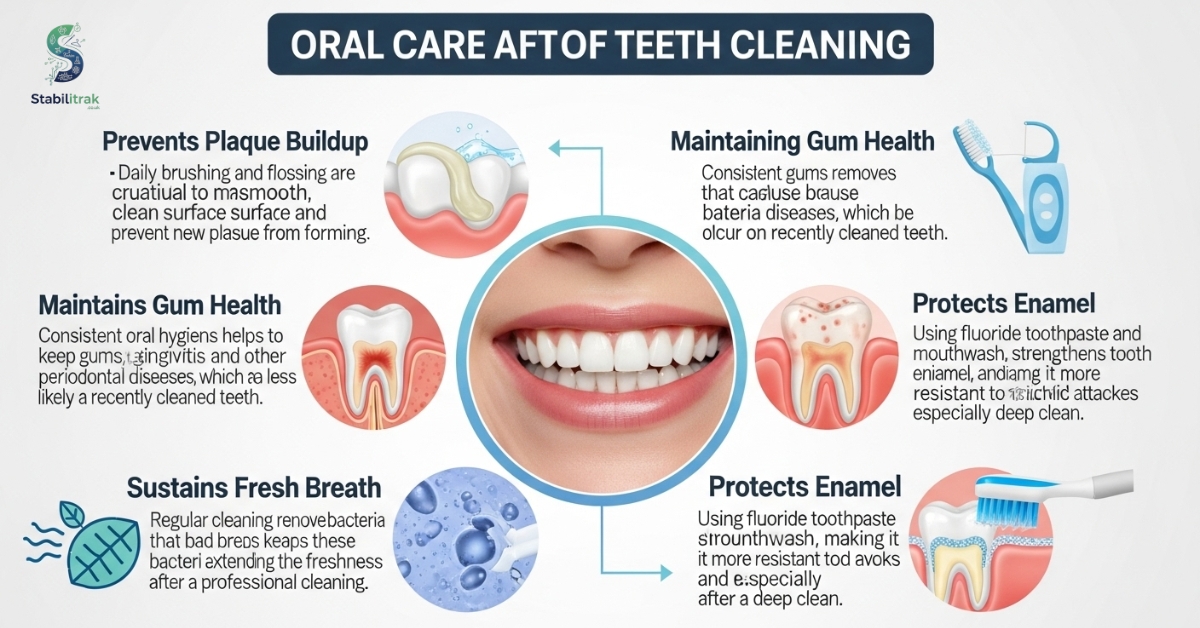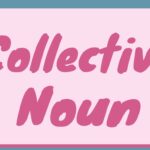You know that fresh, squeaky-clean feeling after a dental visit, but then the question hits you: Can I eat after teeth cleaning? Maybe you’re hungry because you skipped a meal before the appointment, or you’re worried about messing up the work your dentist just did. It’s a little confusing, and no one wants to undo the benefits of their cleaning just by eating the wrong thing too soon.
In this post, we’ll clear up exactly what you can and can’t eat after teeth cleaning, along with some simple tips to keep your smile in great shape. You’ll learn the best foods to go for, what to avoid, and how timing plays a role. By the end, you’ll feel confident about your next steps after a dental cleaning.
Sticky or Chewy Food
Sticky and chewy foods are the biggest culprits after a cleaning. Items like caramel, taffy, gummy candies, dried fruits, or beef jerky cling to your enamel and gums. Because your gumline may still be tender from scaling and polishing, these sticky foods can cause gum irritation and make plaque stick more easily.
Even healthy chewy snacks like dried apricots or sticky granola bars can leave behind residue that’s tough to remove while your mouth is sensitive. Avoid them for at least a day or two. Soft foods like scrambled eggs, yogurt, or applesauce are safer and much easier to rinse away.
Spicy Food
Spicy meals such as chili, hot wings, or dishes with strong peppers can irritate newly cleaned gums. After a cleaning, your gum tissue may be inflamed, making it more sensitive to heat and spice. Eating very spicy food too soon can cause stinging or burning sensations.
Give your mouth at least 24 hours of recovery before eating hot or spicy meals. When you reintroduce them, start with mild flavors and chew slowly. This helps reduce gum irritation and allows your taste buds to enjoy spice again without discomfort.
Acidic or Sour Food
Acidic foods like citrus fruits, tomatoes, pickles, and pineapples are tough on your enamel when it’s freshly polished. The acids can temporarily erode the outer layer of your teeth and increase sensitivity, especially along the gumline.
Skip sour fruits and acidic sauces (like vinegar dressings or tomato-based pasta) for a day or two. Once your gums heal and sensitivity fades, you can gradually bring back citrus or tomato-based meals without worrying about enamel erosion.
Oversized Food
Taking oversized bites puts unnecessary pressure on your jaw and gums, which can already be tender after cleaning. Foods like giant sandwiches, cheeseburgers, hot dogs, and whole apples can be hard to chew and may scrape the gumline or irritate tender spots.
Cut foods into small pieces, chew gently, and avoid anything you have to tear or bite aggressively. This helps reduce strain and keeps your gums from becoming sore or inflamed.
Very Hot or Very Cold Food
Temperature extremes, such as steaming hot soups or icy smoothies, can trigger tooth sensitivity after a cleaning. Freshly polished enamel transmits hot and cold sensations more easily, making discomfort more likely.
Choose lukewarm or room-temperature foods and drinks for the first day. Let soups cool before eating, skip the ice in your drinks, and avoid frozen desserts like ice cream or popsicles until sensitivity improves.
Sharp or Crunchy Food
Sharp-edged or crunchy foods such as tortilla chips, popcorn, pretzels, crackers, and nuts can poke or scratch sensitive gums. Even a tiny abrasion can feel painful and delay healing.
Instead of crunchy snacks, go for soft foods like mashed potatoes, oatmeal, or smoothies. If you’re craving crunch, wait a day or two and then introduce gentler snacks like soft breadsticks or lightly steamed veggies.
Highly Pigmented Food
Highly pigmented foods and drinks, such as coffee, tea, red wine, blueberries, blackberries, beets, and soy sauce, are known for staining enamel. After a professional cleaning, your teeth are polished and are less vulnerable to color absorption.
For at least 24 hours, avoid dark-colored foods and drinks to protect your bright, polished smile. When you return to them, rinse with water immediately afterward to minimize staining and maintain your cleaning results.
Read More Article: How Long Does Wisdom Teeth Removal Take?
Alcoholic and Carbonated Beverages

Alcoholic drinks like wine, beer, and cocktails can dehydrate your mouth, reducing saliva production. Saliva is crucial for protecting enamel and washing away food particles after a cleaning. Carbonated drinks, including soda and sparkling water, are acidic and can irritate gums.
Skip alcohol and soda for at least a day after your appointment. Drink plenty of plain water instead to stay hydrated and keep your gums healthy.
Large Bites or Oversized Foods
Another thing to watch out for is taking large bites of tough foods like steak, pork chops, or big, crusty sandwiches. This can stress the jaw and cause gum soreness, especially after scaling or deep cleaning.
Cut meats and large foods into small bites. Chew slowly and give your gums time to recover before eating tough meats again.
So, What Can You Eat After a Professional Teeth Cleaning?
Now that you know what not to eat after teeth cleaning, here’s what you should eat. Focus on soft, mild, and non-staining foods. Some excellent choices include:
- Applesauce
- Scrambled eggs
- Oatmeal
- Mashed potatoes
- Soft-cooked vegetables
- Rice
- Smoothies (without ice)
- Cottage cheese
- Yogurt
- Bananas
These foods are gentle on gums, easy to chew, and won’t stain your freshly polished enamel.
Read More Article: How Much Does a Tooth Crown Cost?
Why Oral Care After Teeth Cleaning Is Important

Professional teeth cleaning removes plaque, tartar, and surface stains that your toothbrush can’t handle. But your gums may be tender, and your enamel more exposed to hot, cold, and color pigments. The first 24 to 48 hours after cleaning are a healing window, where what you eat and drink matters most.
Following your dentist’s advice and avoiding risky foods during this time helps your gums heal, prevents staining, and keeps your enamel strong. Think of it like a fresh start for your mouth, protect it, and it will reward you with a brighter smile.
Schedule Your Next Professional Teeth Cleaning
Routine cleanings every six months are key to maintaining oral health. Before leaving your appointment, schedule your next cleaning so you won’t forget. Regular visits remove tartar, prevent gum disease, and keep your teeth looking great.
Request an Appointment
If it’s been a while since your last cleaning, book one today. Whether you’re due for a standard cleaning or a deeper scaling, professional care keeps your gums and enamel healthy.
Recent Posts
- The Best Soft Foods for Sensitive Teeth
- How to Prevent Tooth Staining After a Cleaning
- Gentle Brushing Tips for Healing Gums
Hours of Operation
Many dental offices now offer early morning, evening, and weekend appointments to fit your schedule. Check your provider’s website for hours.
Conclusion

Knowing what not to eat after teeth cleaning can make a big difference in how long your teeth stay fresh and healthy. Avoiding hard, sticky, or heavily colored foods helps protect your enamel and prevents stains from setting in right after your cleaning. By being a little mindful about your food choices, you give your teeth the best chance to stay bright, smooth, and strong until your next dental visit.
FAQS
How long to wait to eat after a teeth cleaning?
You can usually eat about 30 minutes after a regular cleaning. If fluoride treatment was applied, wait at least an hour before eating.
What can I eat after a teeth cleaning?
Soft, mild foods like yogurt, soup, eggs, and mashed potatoes are best. They’re gentle on teeth and won’t cause sensitivity.
How long after teeth cleaning can I drink tea?
Wait at least 30 to 60 minutes before drinking tea. Dark teas can stain freshly cleaned teeth, so lighter options are better.
What not to eat after teeth cleaning, Reddit?
Avoid hard, sticky, or staining foods like candy, chips, and coffee right after cleaning. These can cause discomfort or discoloration.
Soft foods to eat after deep cleaning?
Good options include oatmeal, smoothies, scrambled eggs, and steamed vegetables. These keep you full without stressing your gums.
Can I eat rice after teeth cleaning?
Yes, soft rice is safe to eat. Just make sure it’s not too hot and chew gently if your gums feel sore.
Can I eat chicken after a teeth cleaning?
Yes, tender or shredded chicken is fine. Avoid hard, crunchy, or spicy preparations that may irritate sensitive gums.
Can I eat bread after teeth cleaning?
Yes, soft bread is safe, but avoid crusty or hard types. Whole wheat or soft white bread is easier on teeth and gums.
Do and don’ts after teeth cleaning?
Do eat soft foods, brush gently, and drink water. Don’t eat hard, sticky, or strongly colored foods right after cleaning.
When can you eat after cleaning your teeth?
Most people can eat 30 minutes after cleaning. If fluoride was applied, waiting at least an hour is recommended.






